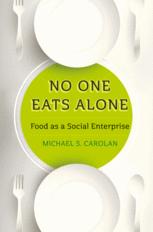

Most ebook files are in PDF format, so you can easily read them using various software such as Foxit Reader or directly on the Google Chrome browser.
Some ebook files are released by publishers in other formats such as .awz, .mobi, .epub, .fb2, etc. You may need to install specific software to read these formats on mobile/PC, such as Calibre.
Please read the tutorial at this link: https://ebookbell.com/faq
We offer FREE conversion to the popular formats you request; however, this may take some time. Therefore, right after payment, please email us, and we will try to provide the service as quickly as possible.
For some exceptional file formats or broken links (if any), please refrain from opening any disputes. Instead, email us first, and we will try to assist within a maximum of 6 hours.
EbookBell Team

0.0
0 reviewsThis volume is about becoming better food citizens. The author argues that building community is the key to healthy, equitable, and sustainable food. While researching this book, the author interviewed more than 250 individuals, from flavorists to Fortune 500 executives, politicians to feedlot managers, low-income families to crop scientists, who play a role in the life of food. Advertising consultants told him of efforts to distance eaters and producers—most food firms don’t want their customers thinking about farm laborers or the people living downstream of processing plants. But he also found stories of people getting together to change their relationship to food and to each other.